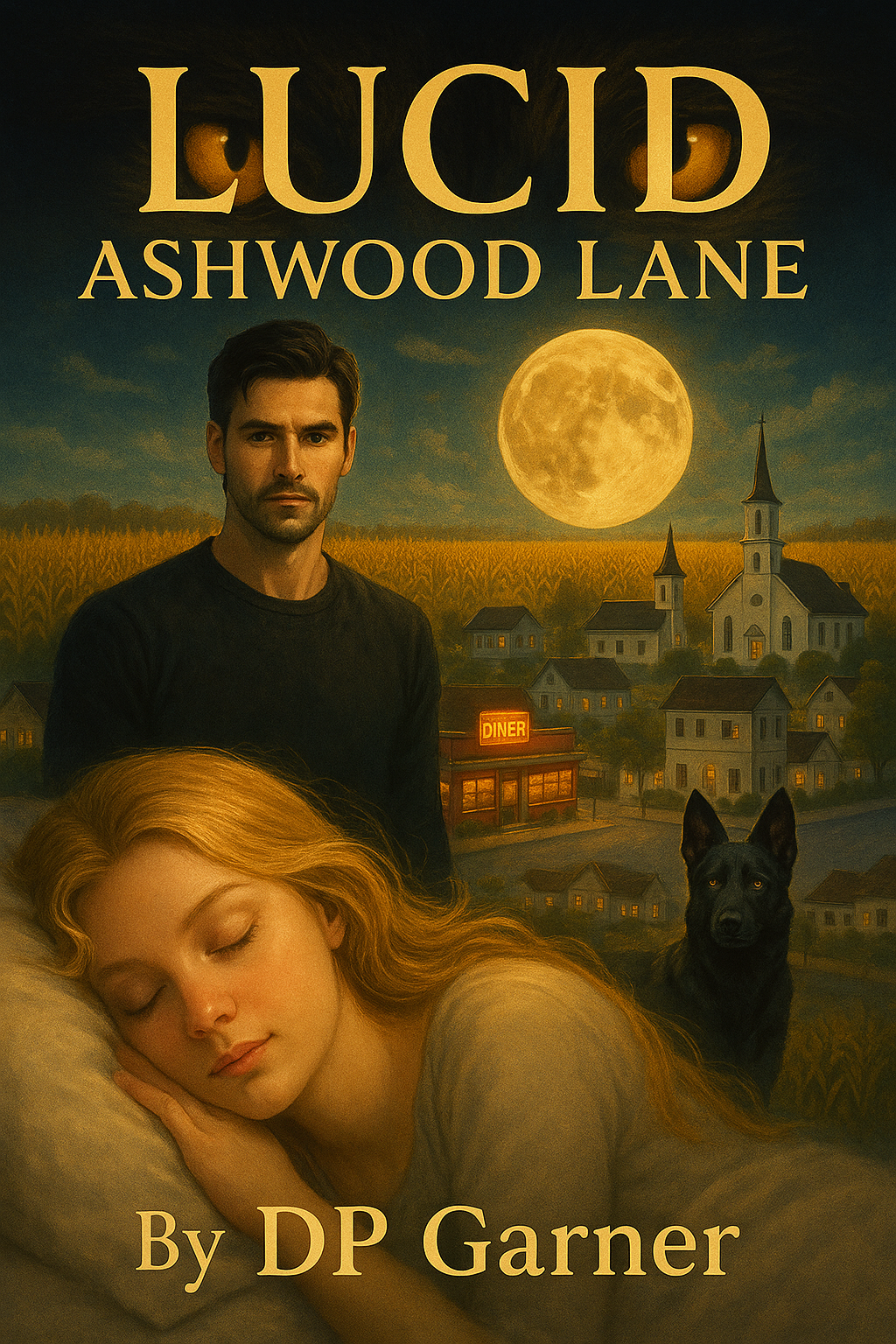My Store
Lucid
Lucid
Couldn't load pickup availability
Ashwood Lane was the kind of town you didn’t plan on finding.
A stretch of two-lane road, a diner that blinked its neon Open sign even when it wasn’t, and a church steeple that rose above the corn like a promise the sky no longer kept.
By day, it was ordinary enough — kids on bikes, porch lights glowing at dusk, the smell of fried food drifting from the diner window. But beneath all that comfort ran something deeper. The land breathed, quietly. Some nights it even seemed to listen.
People said the town had a pulse — not in the way a place is alive, but in the way a heart remembers who it once belonged to. It beat strongest in the fields at night, when the wind died and the rows leaned toward one another, whispering in a language no one had spoken for years.
That was when the dreams began.
Clocks froze at 3:18 A.M. across town. Radios crackled with voices no one could trace. The dogs howled toward nothing and then fell silent all at once. People woke with dirt under their nails and the taste of blood in their mouths. Some said they’d been walking. Some said they’d been watched.
And through it all, the corn grew taller. Hungrier.
Mara was the first to notice the pattern. She’d returned home thinking she could outdream whatever had followed her — that the silence of her childhood town might save her from the nights she couldn’t wake from. But Ashwood Lane had its own kind of dreaming, and it had been waiting for her.
Then came Caleb — the teacher who didn’t believe in curses, who stayed long enough to see one take root. He said it was science, sleep, shared delusion. Until he stopped saying anything at all. Until he began to walk the rows at night, eyes half-open, murmuring words no one taught him.
The others — Nora, Ed, Ruth, Hank, Mutt, Amber, Jace — they all heard it too, that hum beneath their feet, the one that sounded almost like their own names spoken through soil. Each thought they were alone in it. Each learned they weren’t.
By the time anyone understood what was happening, the town had already begun to dream them back.
Now Ashwood Lane sits quiet again. The church bell stays still. The diner glows warm through the night, coffee steaming in mugs no one remembers pouring. From the highway, it looks harmless — a place that survived when so many didn’t.
But if you ever drive through after midnight, when the sky goes still and your headlights start to flicker, you might glance at your clock and see it frozen at 3:18.
You might pass the diner and notice the faces in the window — smiling, familiar, waiting.
And if you stop, someone might hold the door open for you and say, “Welcome to Ashwood Lane.”
They’ll mean it.
They’ve been waiting a long, long time.
The dream doesn’t end when you wake — it only changes who’s dreaming.
Share

An unforgettable read from start to finish!
This book completely exceeded my expectations. The author masterfully blends powerful storytelling with emotional depth, creating characters that feel real and moments that stay with you long after you’ve turned the last page. The pacing is perfect — never rushed, yet always engaging — and the writing flows beautifully.
Beautifully written, Lucid swept me into the eerie world of Ashwood Lane and kept me turning pages late into the night. A fantastic start to the series — can’t wait for more!
Beautifully written, Lucid swept me into the eerie world of Ashwood Lane and kept me turning pages late into the night. A fantastic start to the series — can’t wait for more!
I was thrilled by this book! Solid read especially in time for spooky season. 👻🎃
I couldn’t put this book down. The mix of suspense, emotion, and vivid imagery made me feel like I was right there in Ashwood Lane. I’m already looking forward to the next in the series!
